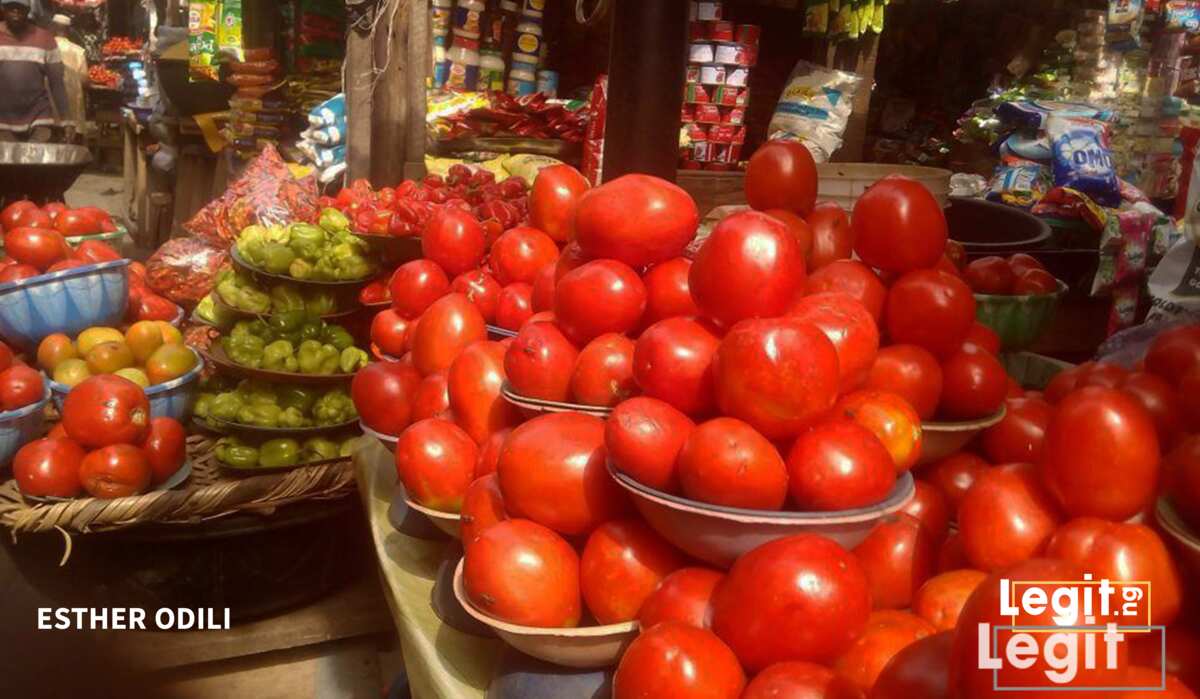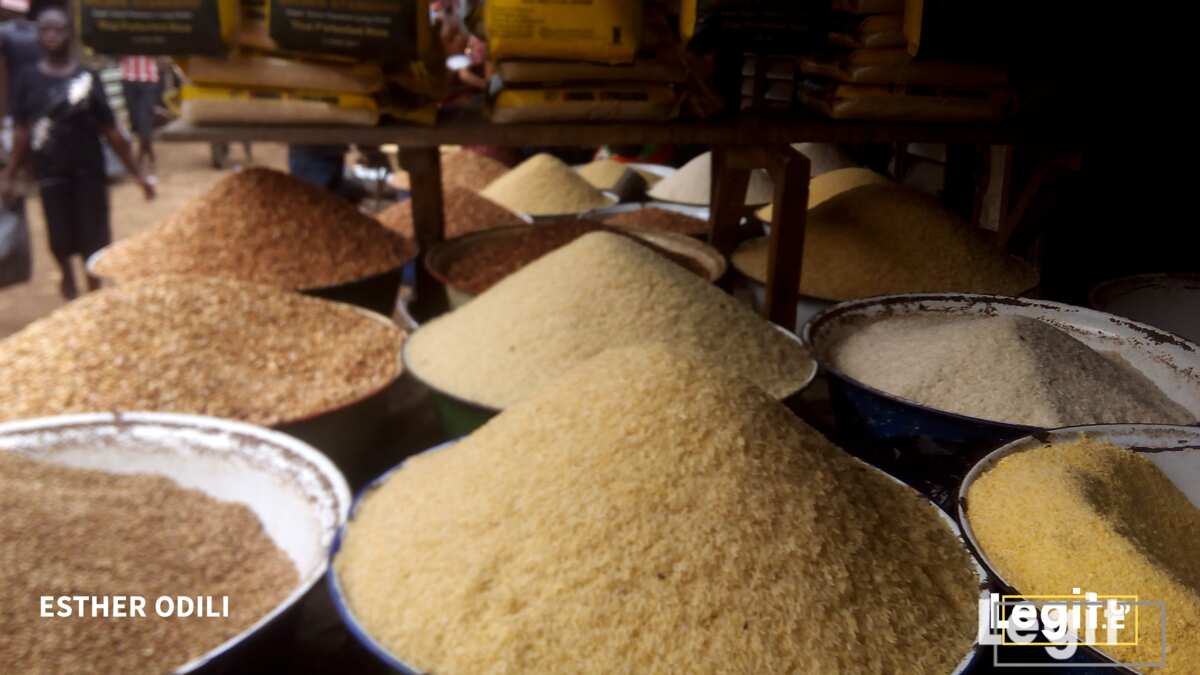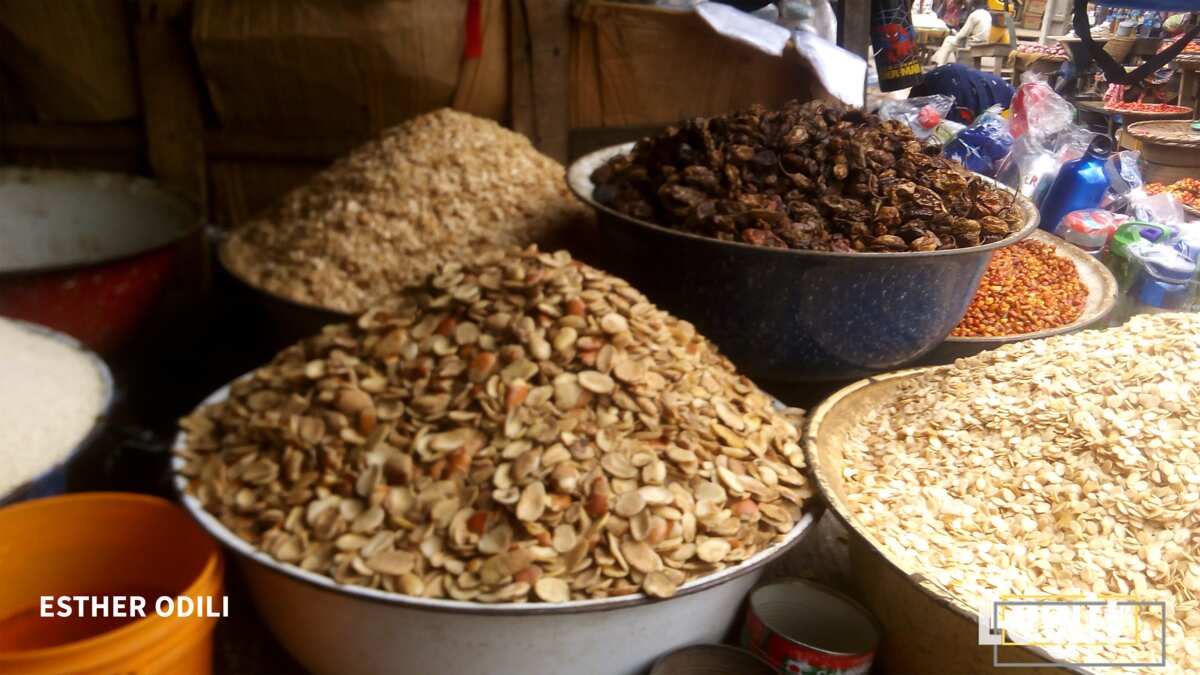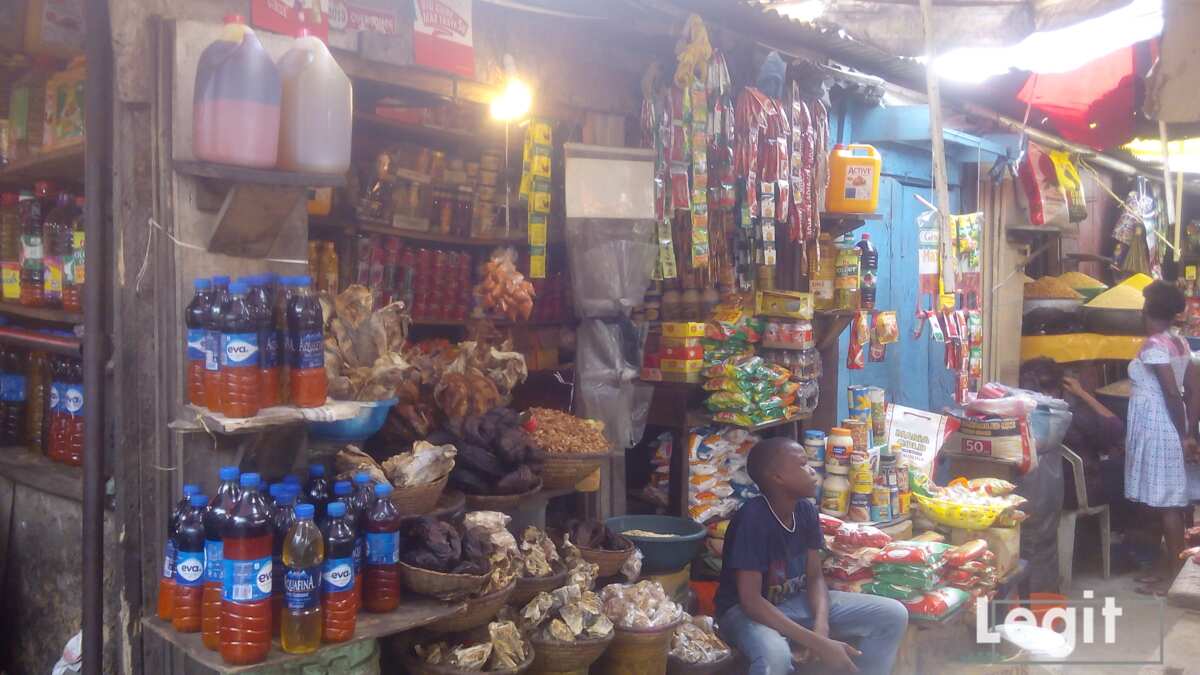- As Nigerians prepare for the general elections, the prices of basic food items have become affordable and available in major markets across the state
- Findings by Legit.ng at Ketu market revealed that the prices of some goods crashes and others fluctuate
- But despite the affordability in the price of goods, traders lament low patronage and buyers’ low income
Just few weeks to the general election, the prices of basic food items across the state have crashed.
Most general market in Lagos state have experienced a reduction in the price of some basic food items and a fluctuation in others.
At this period, traders usually make good sales, but the reverse is the case, the slow pace of business seems to be the order of the day despite the presence of buyers in various markets across the state.
The prices of tomatoes, rice and garri which went up at the turn of the season, have now witnessed reduction in most markets in Lagos metropolis, Legit.ng confirmed this at Ketu market.
The survey revealed the stability in prices of some commodities like rice, beans and garri, especially those considered essential for the season. But most buyers who spoke with Legit.ng complained of insufficient funds to purchase items, just as most traders bemoaned low patronage, compared to last year.
Activities at Ketu market were still business as usual, with little or no difference to show that election is around the corner.
Some dealers in food items in the market attributed the rising cost of some commodities on the increase in the cost of transportation.
A yam seller, Mallam Kabiru said the price of yam rises because of the high cost of transporting the goods from the state purchased to the market which at times is not convenient for traders but expensive.
“During the festive period, prices of goods like yam are always on the high side but after festive period, it becomes affordable. Bringing the goods from the farm to the city is not really easy for traders but in other to survive, they are left with no choice than to purchase at any cost price.
“An average size of a tuber of yam sold for N500 and N600 before, now goes for N400 and N300. While a big sized tuber of yam earlier sold for N800 and above, now goes for N600 and N500. The yams that are expensive can be traced to a margin of N100 or N50. And the price difference is determined by the market visited. Goods sold at major markets are quite affordable,” he informed Legit.ng.

Due to excess supply, tomatoes and pepper are sold at affordable rates in markets across the state. Photo credit: Esther Odili
Source: Original
A trader at the market Iya Bose, decried low patronage, saying by this time last year, people had started buying goods in large quantity, unlike this year. But she was optimistic of sales picking up as the election draws nearer.
She said: “You can purchase basket of tomatoes, from N5, 000 and the big ones from N8, 000, depending on the size. Before now, tomatoes are quite expensive due to the festive season and cost of transportation but when festivity was over, it became affordable as supply increased on a daily basis.
“The issue we are having now is not the price of goods but the business activity in the market. Business is dull, despite the affordability of goods in the market. Some buyers have now formed the habit of complaining that the economy is bad as a result there is low cash to spend. Also, others are not buoyant enough to purchase the goods and in turn this affects our level of sales.”
A wholesale trader who sells rice at the Market, addressed simply as Mr. Cletus, lamented low patronage, describing the situation as unbearable.
In a chat with Legit.ng correspondent, he explained the recent situation of the market.
“Rice and beans have become very affordable and this is due to the excess supply in the market. Business for me is moving gradually because it is the first month of the year; we are trying really hard to stay on track. Prices of some goods have not increased, in fact they are affordable. A bag of rice (Aroso) that was sold at N16, 000 before now goes for N13,500, and a bag of rice (Agric) which we sold for N15, 000 goes for N13,000 but this is the selling price in major markets while in retail market it can be purchased from N14,000.
“The prices of beans in various markets across the country have witnessed a sharp decline. A bag goes from N23,000 upwards depending on the size and the type. For garri, a bag of white garri cost N6,000 while a bag of yellow garri cost N5,000 due to size differences. We sell 25-litre of Kings Groundnut oil for N12,000, while refill groundnut oil cost N10, 700 and that of palm oil cost N10,500 while the one from the eastern state can be purchased from N11,500.
“The price of goods generally is quite reasonable but despite this, the purchasing power of the buyers is still very low and in turn making the business frustrating for us.
“The economic condition of the country reflects in the cost of goods and services. When the economy situation is good, the cost of goods will be at a very reasonable rate but when it is bad, the reverse will be the case,” Mr. Cletus told Legit.ng.

Despite the affordability of these food items, traders lament poor sales in Ketu market, Lagos. Photo credit: Esther Odili
Source: Original
In another development, the prices of foodstuff items have soared in the market. A retailer who sells foodstuff items in the market identified as Mrs. Obiora, said that the increase in the price of goods was not new and the factor that led to the increment is unknown to traders.
She said: "The price increase is not unexpected in the market especially when you witness consistent rainfalls earlier in the year. A cup of egusi is N200 while derica is N800 or N900. A big bag of egusi (Machine) that cost N55,000 before, now cost N65,000 and the bag of Egusi (Handpeel) that cost N45,000 before, now cost N50,000 now. The price difference is as a result of the size of the bags. Sometimes one cannot really give a fixed price for these food items because they fluctuate.
“A milk cup of ogbono cost N600. A bag of Ogbono that cost N80,000 before, now goes for N100,000. While a big nylon crayfish that cost N30,000 before, now cost N26,000. This was due to the change in the weather pattern. Buyers complain bitterly over the increment in the cost of the items and we cannot tell what exactly led to the increment.”

The fluctuating price of ogbono and egusi render traders in the market helpless. Photo credit: Esther Odili
Source: Original
Consumers who spoke with our correspondent in anonymity, expressed concern over the persistent price increase of some food items, especially foodstuff items and beef like fresh cow meat, goat meat and even dry fish.
A consumer at the market express satisfaction over the affordability of some goods; adding that most people are now living under difficult circumstances as a result of the worsening situation of the country hence their purchasing power is affected.
“I am glad that some goods are sold at a reasonable price which is unlike traders before but the sad thing is that most buyers cannot afford three square meals per day due to the worsening situation of the country. This therefore affects their purchasing power in a large way. We are facing a hard time now, and things are really not working well in Nigeria. People are suffering,” Evelyn, a consumer at the market informed our correspondent.
A trader who sells meat in the market lament low purchasing power of the buyers that has resulted in low profit after daily sales.
Mr Jamiu said: “The price of a big cow now goes from N150,000 as against its old price of N120,000. The purchasing power of buyers is very low compared to previous months. Those who patronise us now are the food sellers and the pap sellers, they buy in large quantity. Asides these set of people, we struggle to sell.
“It has been a challenging period for us traders, as well as buyers in most markets because we now witness poor patronage and low cash. The situation in Nigeria is very frustrating because to bring goods into the market is very hard due to the bad state of our major roads in the country; yet, after going through all these difficulty, you still don’t make good sales, it is pathetic.”

At Ketu market, stock fish and dry( Igbo roasted fish) fish have become expensive. Photo Credit: Esther Odili
Source: Original
Some beverages, cereals, and powdered milk (diary milk) as well as liquid milk have also witnessed a slight increase. A dozen of Peak Milk (sachet), which goes for N550 before, now goes for N500. And a dozen of Three Crowns milk (liquid) that usually cost N1,300 now cost N1,300 while one row cost N300 and some N280, N250 and N350 respectively. As a result of the increase in prices of some, there has been a shift in patronage of these goods from neighbouring countries.
Other traders at the market informed that the fluctuation in the exchange rate is not the only reasons for the economic hardship that Nigerians are facing. According to them, other factors such as cost of transportation, bad road network, agricultural issues, rainy season, and importation issues are some of the reasons for the instability in food prices.
Street Gist: Presidency, Nigerians give their thoughts on the fight against corruption via Legit TV
Source: Legit.ng
from Nigeria News today & Breaking Naija news ▷ Read on Legit.ng 24/7 http://bit.ly/2Gzfyb8
via EDUPEDIA24/7
Comments
Post a Comment